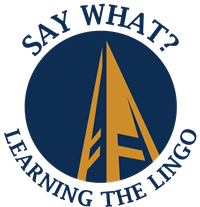 Learning, of course, is the goal of any college experience. Part of that education means familiarizing yourself with some unfamiliar terms. Don’t worry, we’ve got you covered.
Learning, of course, is the goal of any college experience. Part of that education means familiarizing yourself with some unfamiliar terms. Don’t worry, we’ve got you covered.
As part of an occasional series, we’ll explain phrases, lingo or topics to add to your college vocabulary. We call it “Say What?” If there’s a topic you’d like to see covered, please send suggestions to communications@schoolcraft.edu.
Today we’ll learn about the difference between a community college (like Schoolcraft College) and a vocational school.
Key differences
A key benefit of attending a community college is the wide range of educational options. Vocational schools, on the other hand, provide training that tracks toward a specific trade, job or industry. A student at a vocational school might have the opportunity to explore other options, but the range of educational selections is nothing like the more than 130 programs offered at Schoolcraft College.
These include occupational trades. Schoolcraft College’s state-of-the-art Manufacturing & Engineering Center (MEC) is now open and home to nine programs:
- Biomedical Engineering Technology
- Computer-Aided Design (CAD)
- Engineering Technology
- Electronics
- Manufacturing Technology/CNC (Computer Numerical Control)
- Mechatronics
- Metallurgy and Materials Science
- Plastic Technology
- Welding
This 48,000-square-foot facility also houses a 3D printing lab and robotic lab, while greatly increasing hands-on space for welding, manufacturing, plastics technology and material science.
More ways to determine your future
Community colleges offer a gateway to training and credentials for jobs as well as further educational pursuits. For example, Liberal Arts transfer is the No. 1 “major” at Schoolcraft College. That means many students take advantage of the lower cost (compared with four-year schools) to finish their General Education requirements here, then transfer to a four-year school to finish their Bachelor’s degree.
“Another key benefit of attending Schoolcraft College is that if a student starts in a course of study and finds it’s not quite the right fit, it’s likely they can find another program right here – they don’t have switch schools,” said Carol Dwyer, Director of Advising and Transfer. “They don’t have to go through the hassle of finding another college and SC Advisors can help them create a new plan. With a vocational school, if you find what you’re doing isn’t fulfilling, you’ll likely have to find another school.”